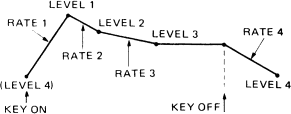There's no "quality of how it sounds". It's sine waves and FM algorithms, the math of those has been thoroughly understood for at least a century now.ghostwhistler wrote: ↑Sun Feb 21, 2021 1:14 pm I can respect the effort that went into programming dexxed without having to like the quality of how it sounds.
It's one thing to prefer DX7 V because you prefer the UI - I frankly think the V collection UI is excellent, and click-and-drag envelopes were enough to almost tempt me into buying DX7 V standalone before I got a hold of my senses and waited for a sale on the whole V collection - but trying to make it about "sound", and particularly the specific complaints you have about the sound, tells me that either you're comparing it to processed/mastered samples, or you're confused by the extra built-in FX of the DX7 V, which are convenient but nothing that can't be added to a Dexed patch.
Or you're just going through the built-in presets and deciding that the Arturia presets are better than the Dexed presets - which is possible for a reasonable individual to conclude, but that's the presets sounding better, not the synth sounding better. It's saying Car A is better than Car B because the radio in Car A is tuned to your favorite station.
The only person being defensive in this thread is you. You have a logical reason to be defensive, considering the rest of the thread is mostly calling you an idiot, but they have a logical reason to be calling you an idiot, considering you came in here three days ago asking about the differences between the Synclavier and DX7 and are now trying to give advice based on how you think an emulation of the DX7 should sound.ghostwhistler wrote: ↑Sun Feb 21, 2021 1:13 pm Not sure why there's a need to be defensive about this. I don't like how Dexxed sounds.















